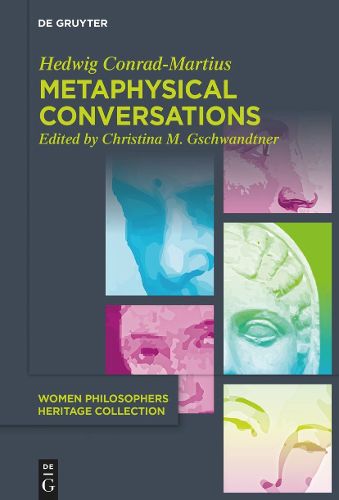Readings Newsletter
Become a Readings Member to make your shopping experience even easier.
Sign in or sign up for free!
You’re not far away from qualifying for FREE standard shipping within Australia
You’ve qualified for FREE standard shipping within Australia
The cart is loading…






This is the first translation into English of early phenomenologist Hedwig Conrad-Martius’ Metaphysical Conversations, originally published in 1921. Conrad-Martius was one of Husserl’s first students, an important part of the Goettingen Phenomenology Circle and mentor to Edith Stein, Jean Hering, and other early phenomenologists. The present volume provides the full German and English texts of the conversations, a phenomenological discussion of the nature of the human, examining the nature of body, soul, and spirit, and drawing distinctions between plants, animals, humans, and various other beings. The volume also includes two important essays on phenomenology, in which Conrad-Martius distinguishes between the phenomenological approaches of Husserl, Heidegger, and the more ontological approach of the Goettingen school of phenomenology. She is critical of Husserl’s transcendental and Heidegger’s existential approach. The conversations illustrate her use of the phenomenological method for fundamental investigations into the nature (or Wesen) of things.
$9.00 standard shipping within Australia
FREE standard shipping within Australia for orders over $100.00
Express & International shipping calculated at checkout
Stock availability can be subject to change without notice. We recommend calling the shop or contacting our online team to check availability of low stock items. Please see our Shopping Online page for more details.
This is the first translation into English of early phenomenologist Hedwig Conrad-Martius’ Metaphysical Conversations, originally published in 1921. Conrad-Martius was one of Husserl’s first students, an important part of the Goettingen Phenomenology Circle and mentor to Edith Stein, Jean Hering, and other early phenomenologists. The present volume provides the full German and English texts of the conversations, a phenomenological discussion of the nature of the human, examining the nature of body, soul, and spirit, and drawing distinctions between plants, animals, humans, and various other beings. The volume also includes two important essays on phenomenology, in which Conrad-Martius distinguishes between the phenomenological approaches of Husserl, Heidegger, and the more ontological approach of the Goettingen school of phenomenology. She is critical of Husserl’s transcendental and Heidegger’s existential approach. The conversations illustrate her use of the phenomenological method for fundamental investigations into the nature (or Wesen) of things.